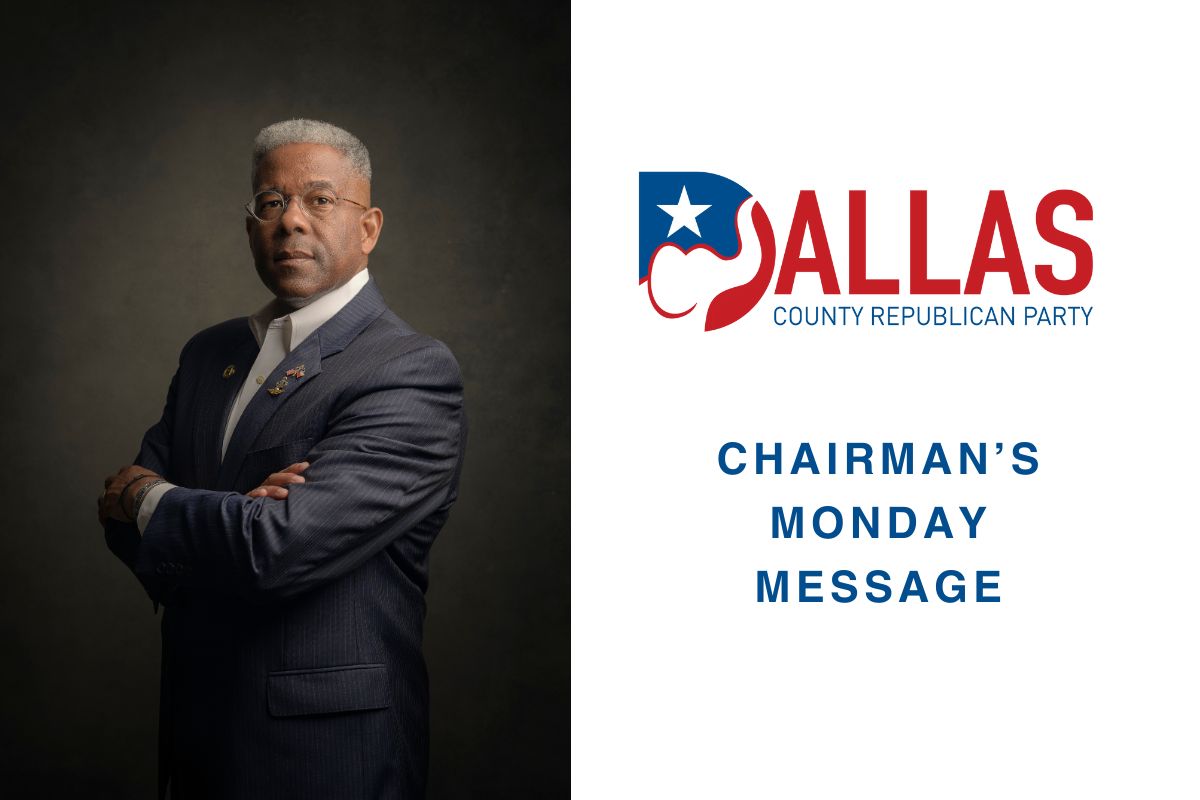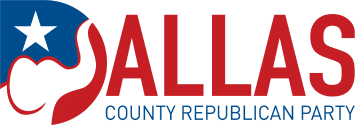
The “Unhoused Population”
Good Monday morning, y’all! First, I want to thank everyone who came out to support the Dallas County Republican Party’s Reagan Rawhide Roundup at Gilley’s. It was an awesome evening and a special thanks to our event Chairwoman, Anne Palles, and her committee. John Rich gave a phenomenal and energized concert performance. It was all for the cause to “Fight Local, Win National.” But sometimes it appears there are obstacles precluding our efforts locally. It is imperative that we all understand that election processes and procedures are established at the county level. Election law is determined at the state level. Here at the DCRP we are busy working to fill requirements for election judges, poll workers, and poll watchers for early voting and Election Day. If you are interested, please drop by our offices, or fill out our form online. We are also getting more folks certified as voter registrars enabling them to register people to vote.
It was during one of the Dallas County Elections Department training sessions for voter registrars that something came up causing concern. It was captured on video, which you can watch here, the DCED instructor advising on how to register homeless persons. Now, one would think this is absurd, but the Administrator of Elections in Dallas County, Heider Garcia, responded with a letter.
Administrator Heider states:
“There are claims misrepresenting the discussion in the video, about the challenges faced by the unhoused population when registering to vote. These claims falsely imply that legally protected voter registration practices are acts of voter fraud. State (Texas) law is very clear: having a home is not a requirement to be eligible to register to vote, and voters can use an address other than their residential address as a mailing address. Dallas County Elections wants to make this very clear: US citizens eligible to vote under federal and state law will be allowed to register to vote, whether they are housed or not.”
Let’s analyze this statement. First of all, if Texas legislators and the governor have signed into law permission for homeless individuals to vote, then our concerns should be directed to them, and the Texas Secretary of State office. Here is the reason: how many of the “unhoused population” have identification? As well, if said homeless person uses a local church address or soup kitchen as a claim of address, meaning residence, how is that to be controlled or audited? What happens when countless voter registration cards are mailed to said address, how does one ID the person to receive the card? These are viable questions because the practice of granting voter registration cards to homeless persons can lend itself to acts of voter fraud, especially if there are no control or mitigation measures.
This leads me to the next issue which is another concern, the reasonable impediment declaration.
The Texas Secretary of State office defines this as:
“Instructions: If a voter appears on the official list of registered voters, but does not possess an acceptable form of photo identification under Section 63.0101 (a) of the Texas Election Code (which, for voters aged 18‐69, has expired by no more than four years, and for voters aged 70 or over, is or is not expired, if otherwise valid) (“Acceptable Photo ID”), and cannot reasonably obtain an Acceptable Photo ID, the following steps shall be taken by the election officer to allow the voter to cast a regular ballot: 1. Present this form to the voter, and ask the voter to provide a copy or original of one of the following forms of identification listed in Section 63.0101(b) of the Texas Election Code:
a. a certified domestic (from a U.S. state or territory) birth certificate or a document confirming birth admissible in a court of law which establishes the voter’s identity (which may include a foreign birth document);
b. a current utility bill;
c. a bank statement;
d. a government check;
e. a paycheck; or
f. a government document that shows the voter’s name and an address (which includes the voter’s voter registration certificate). NOTE: The address on the identification presented is not required to match the address recorded in the official list of registered voters. NOTE: If on Election Day, a presented voter registration certificate indicates that the voter is appearing at the incorrect polling place, the voter should be directed to the correct polling place.
2. Ask the voter to complete this form by entering their name, and then ask them to review the “Voter’s Declaration of Reasonable Impediment”, indicate their impediment, and sign their name.
3. Ask the voter to return the completed form to you. Neither you nor the election judge may question the voter concerning the reasonableness of any claimed impediment. The election judge should enter the date and then sign on the space provided on the declaration.
4. Either you or the election judge shall fill in the voter’s Voter Unique Identification Number (“VUID”) in the appropriate box or affix a sticker that contains that information across the box, and note on the combination form that the declaration was used by the voter. Either you or the election judge should indicate on the “To Be Completed By Election Official” form what type of document the voter provided by checking the appropriate box. Either you or the election judge should fill in the Date of Election and Location fields.
5. Allow the voter to cast a regular ballot.
So, if we are registering homeless individuals to vote, they are on the voter registration rolls. Without a picture ID they can claim a reasonable impediment declaration and be allowed to vote. Hmm, what could ever go wrong with this?
Add to this, the Texas Criminal Court of Appeals revoked the authority of the Office of the Attorney General of Texas to prosecute cases of voter fraud. That authority and jurisdiction has been given to local County District Attorney offices. Like, yeah, Dallas County DA John Creuzot is going to take action? Even worse, the Texas CCA just made a new ruling regarding the prosecution of voter fraud cases. They must first be investigated by the Texas Ethics Commission, which is composed of half Democrats and half Republicans.
Lastly, I want everyone to know there is a difference between unsolicited mail in ballots and absentee ballots. The latter requires a formal signature request, the former is just the wanton mailing of ballots based upon a voter roll. Texas dodged a bullet last presidential election cycle when Harris County Elections Supervisor, Chris Hollins, also an official with the Texas Democratic Party, was prevented from mailing our massive amounts of ballots.
These are my concerns going into this election cycle, and they are valid concerns. Sadly, both sides of the political aisle are culpable in setting laws, policies, and procedures that lend themselves to enabling voter fraud.
Who should you contact? Your state representatives, the Texas Secretary of State office, and the Governor’s office. We should never willingly create opportunities for nefarious intentions.
Steadfast and Loyal.
Chairman West's #MondayMessage
Thoughts, insights, & topical perspectives delivered to your inbox each week!
